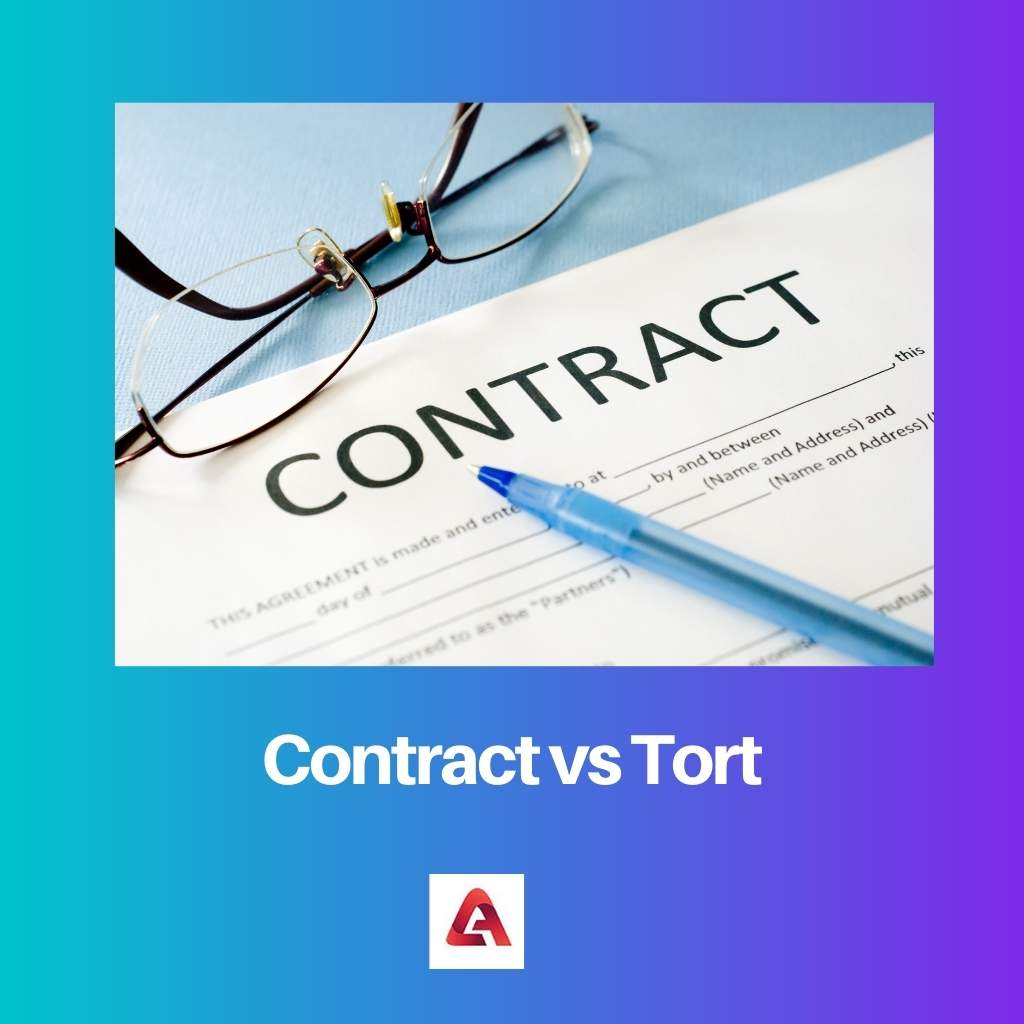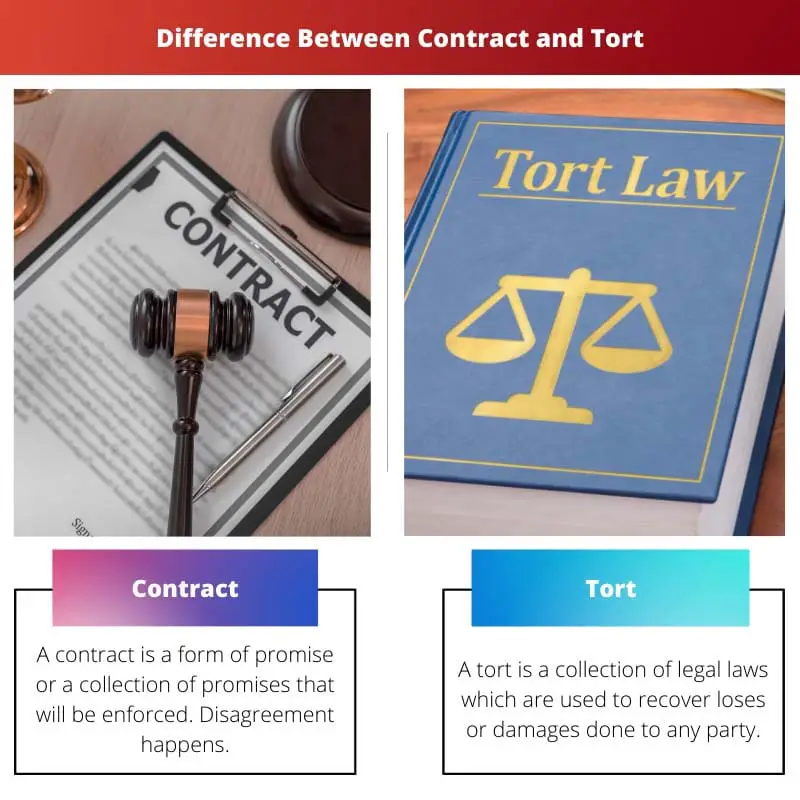Knowledge of every aspect of life is important for survival. You never know if part of it can help you in the next moment. Law terms are confusing and very rare to be used in daily life.
But these terms of knowledge can be helpful in panic situations when the law is facing you right in the eyes. Such situations create panic and misunderstanding due to rare communication to laws, so these terms can be helpful in these situations.
Key Takeaways
- A contract is a legally binding agreement between two or more parties, while a tort is a civil wrong that causes harm or injury to another party.
- The contract involves a breach of an agreement between parties, while tort involves harm caused by one party to another.
- Contract disputes are resolved through breach of contract lawsuits, while tort claims are resolved through civil lawsuits.
Contract vs Tort
The contract is a promise, agreement or collection of promises between and among involved parties and can be enforced if one of the parties violates a promise. It is legally enforceable. Tort is an act that can cause legal liabilities and focuses on the right of a common person to provide justice when they are harmed.

The contract is a promise or collection of promises agreed by the involved parties enforced in case any of the parties involved violates one of them. These contracts can be used legally for the action of the violation.
These parties can use contracts for legal remedies when facing injuries or losses.
The torts are the very act that can lead you to legal liabilities. It is more focused on the rights of a common person than violations of contracts.
When any act is done that can cause harm or injury the torts can be used against them to conserve their rights and provide justice to them.
Comparison Table
| Parameters of Comparison | Contract | Tort |
|---|---|---|
| Definition | A contract is a form of promise or a collection of promises that will be enforced. Disagreement happens. | A tort is a collection of legal laws which are used to recover loses or damages done to any party. |
| Rights | All the rights and obligations in a contract result from the agreement act performed by both parties. | All the rights and obligations in a contract result from the court based on the common law. |
| Duties | The duties for contracts are framed by the parties chiefly. | In the case of torts, the law frames all the duties. |
| Minors | Minors are treated as limited for the liabilities when it is considered in contracts. | Torts consider minors as liable. |
| Privity | The privity is a must scenario in the case of the contracts. | Privity is neither needed nor required. |
What is Contract?
The contract is a promise or collection of promises agreed by the involved parties enforced in case any of the parties involved violates one of them. These contracts can be used legally for the action of the violation.
These parties can use contracts for legal remedies when facing injuries or losses. The contract is a promise or collection of promises agreed by the involved parties.
All the rights and obligations in a contract have resulted from the agreement act performed by both parties.
The duties for contracts are framed by the parties chiefly. A contract is a form of promise or a collection of promises that they can use or will be enforced in any case of disagreement possible.
Privity is a must scenario in the case of the contracts because both parties must be bound by each other. Privity is not needed or required due to the reason there will be the harm is only caused against the will of the injured party.
Contract laws do not reward exemplary damages.

What is Tort?
The torts are the very act that can lead you to legal liabilities. It is more focused on the rights of a common person than violations of contracts.
When any act is done that can cause harm or injury, the torts can be used against them to conserve their rights and provide justice to them.
Torts are a collection of legal laws made by the courts to prevent any victim party from loss and damages by some unfair means.
All the rights and obligations in a contract have resulted from the court based on the common law. In the case of torts, the law frames all the duties. A tort is a collection of legal laws which are used to recover losses or damages done to any party.
Privity is not needed or required because the harm is only caused against the will of the injured party. Torts make minors liable.
In other words, minors can be sued under the torts if there is any fine to be paid, then it is paid from their property.

Main Differences Between Scene And Act
- The main difference between the contract and tort is totally based on the authorities and methods to enforce these. A contract is a promise or collection of promises agreed upon by the involved parties, whereas a tort is a collection of legal laws made by the courts to prevent any victim party from loss and damages by some unfair means.
- All the rights and obligations in a contract result from the agreement act performed by both parties, whereas all the rights and obligations in a contract result from the court based on the common law.
- The duties for contracts are framed by the parties chiefly, whereas, In the case of torts, the law frames all the duties.
- A contract is a form of promise, or a collection of promises that they can use or will be enforced in any case of disagreement if possible, whereas a Tort is a collection of legal laws that are used to recover losses or damages done to any party.
- Privity is a must scenario in the case of the contracts because both parties must be bound with each other, whereas Privity is not needed or required due to the reason there will be the harm is only caused against the will of the injured party.
- Minors are treated as limited for the liabilities when it is considered in contracts, whereas Torts make minors liable. In other words, minors can be sued under the torts if there is any fine to be paid, then it is paid from their property.




